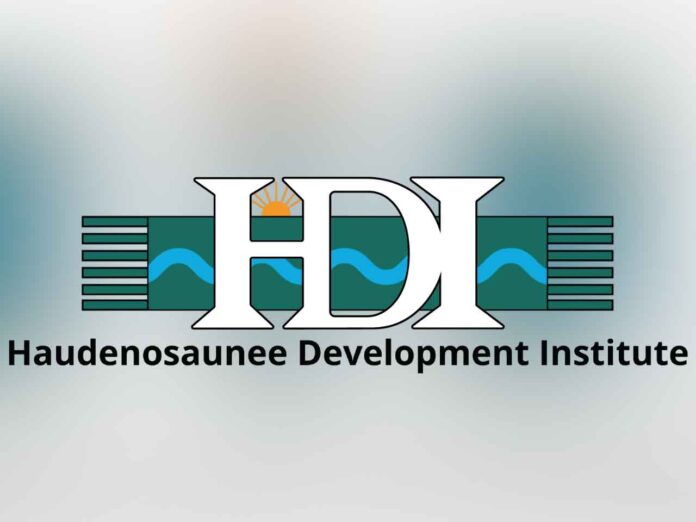Amidst a growing wave of infrastructure projects in Ontario, the Haudenosaunee Development Institute (HDI) is calling for stronger Indigenous consultation and the observance of existing legal treaty rights as they pertain to development sites. HDI has raised concerns over several prominent land development efforts, including the Volkswagen Group’s Battery Cell Gigafactory in St. Thomas, the Waterdown Bypass Project in Waterdown, Enbridge’s Hamilton Reinforcement Project, and the Ontario Place redevelopment initiative in Toronto.
The Haudenosaunee Confederacy Chiefs Council (HCCC), with the HDI as its delegated body, has consistently pushed for adherence to longstanding legal obligations regarding Indigenous consultation, asserting that many of these projects are proceeding without the necessary engagement or consent. This effort is rooted in the protection of Haudenosaunee rights, which are guaranteed under the Nanfan Treaty, the Two Row Wampum Treaty, and the Covenant Chain Treaty, among several other binding agreements.
Volkswagen Group’s Battery Cell Gigafactory
The HCCC has pointed out that the Volkswagen Group’s proposed Battery Cell Gigafactory in St. Thomas fails to follow the Nation-to-Nation consultation process that the relevant treaties mandate. The Haudenosaunee Confederacy has sent formal letters to Volkswagen urging the company to enter into meaningful dialogue with Indigenous representatives, particularly in light of their commitment to social rights.
In their role as representatives and advocates of the Haudenosaunee Confederacy, HDI is seeking assurances that any potential development will not proceed without Haudenosaunee consent, as stipulated by the treaties.
The Waterdown Bypass
The Waterdown Bypass, a new major road construction project that runs through Haudenosaunee treaty territory, has been paused after the City of Hamilton failed to address HDI’s concerns regarding the infringement of treaty rights. The Municipal Class Environmental Assessment (MCEA) requires that the city engage with Indigenous Nations whose rights may be affected, but HDI has argued that the city has not met its obligations in this respect.
Specifically, the Waterdown Bypass threatens protections stipulated in the Nanfan Treaty, which includes the right to undisturbed land use for harvesting. Despite these concerns, the City of Hamilton has continued to push the project forward, neglecting repeated requests for consultation. For their part, the Haudenosaunee Development Institute has made statements expressing hope that the Waterdown Bypass project can be developed in accordance with Haudenosaunee laws and values, provided that proper consultation takes place.
Enbridge’s Hamilton Reinforcement Project
Also in Hamilton, the HCCC has called for a halt to both the Hamilton Reinforcement Project and the Line 11 Maintenance Project, two major energy undertakings managed by the private company Enbridge. Despite HDI’s invitations to negotiate, Enbridge has insisted that Crown involvement is necessary for the consultation process—an approach that both HDI and the HCCC have rejected, citing numerous past agreements made without Crown participation.
This lack of consultation combined with Enbridge’s refusal to engage has led the HCCC to assert that no further work on either of these projects should proceed until their concerns are addressed. HDI continues to insist that Enbridge must observe its legal obligations and participate in respectful and constructive talks with the Haudenosaunee Confederacy.
Ontario Place Redevelopment
The Ontario Place redevelopment project in Toronto has also drawn HDI’s attention as a prime example of the government failing to fulfill its commitments under Section 35 of the Constitution Act dedicated to protecting Indigenous rights. The redevelopment plan, which threatens aquatic life in Lake Ontario, has proceeded without the necessary consultation with Indigenous Peoples, even though the Province of Ontario has acknowledged the project’s potential infringements. In support of their argument, HDI has pointed out that the federal Department of Fisheries and Oceans (DFO) issued an authorization letter for the project that was later withdrawn after it was found to have been unlawful. In response, HDI has requested a proper authorization letter that takes into account Indigenous rights.
As these projects unfold, the Haudenosaunee Development Institute continues to call for proper consultation, as well as for all land development within Haudenosaunee territory to occur in a manner that corresponds with Haudenosaunee values. While HDI’s insistence on these stipulations may result in some delays, the Institute’s primary concern is the protection of treaty rights and the assertion of Indigenous sovereignty, both of which have been guaranteed and upheld many times over by established law.







